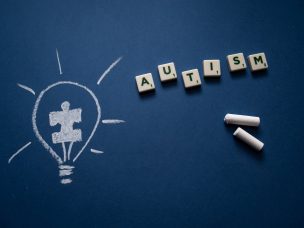Autism
Machine Learning Can Predict Aggressive Behaviors in Youth With Autism
Machine learning analyses of preceding changes in peripheral physiology can predict behaviors before they occur For inpatient youths with autism, machine learning analyses of preceding changes in peripheral physiology can predict imminent aggressive behaviors before they occur, according to a study published online Dec. 21 in JAMA Network Open. Tales Imbiriba, Ph.D., from Northeastern University in...
Neighborhood Disadvantage Tied to Higher Risk for Autism Diagnosis
Rates of autism diagnosis also higher for children of mothers from racial minority groups Children residing in more disadvantaged neighborhoods at birth have a higher likelihood of an autism spectrum disorder (ASD) diagnosis, according to a brief report published online Nov. 15 in JAMA Psychiatry. Xin Yu, from the Spatial Sciences Institute at the University of...
Objective Measures of Social Visual Engagement Aid Early Diagnosis of Autism
Test able to quantify diagnostic status as well as individual levels of social disability, verbal ability, and nonverbal ability. Objective measurements of social visual engagement through eye tracking-based measures can be used to aid in autism diagnosis and assessment, according to a study published online Sept. 5 in JAMA Network Open. Warren Jones, Ph.D., from Children’s...
Autism in Older Adults: Studies Show Higher Rates of Mental, Physical Ills
Key Takeaways Older adults with autism can experience a host of physical and mental ills as they age, new research shows. They faced higher risks of heart failure, COPD, osteoarthritis, anemia, self-harm, type 2 diabetes, falls, spinal issues and gastrointestinal issues. But there was also a mental toll: Those with autism were susceptible to lower...
More Medical News









